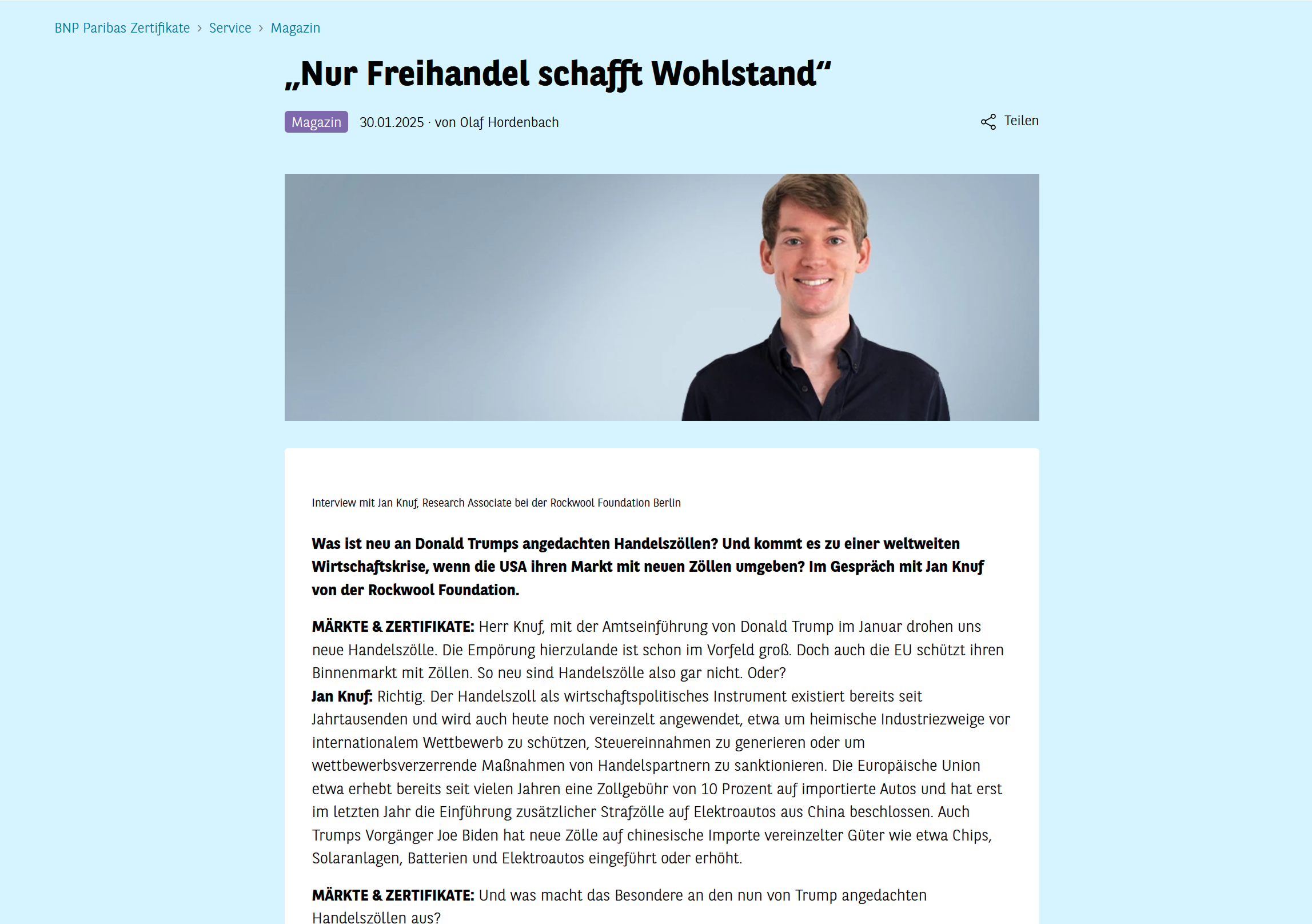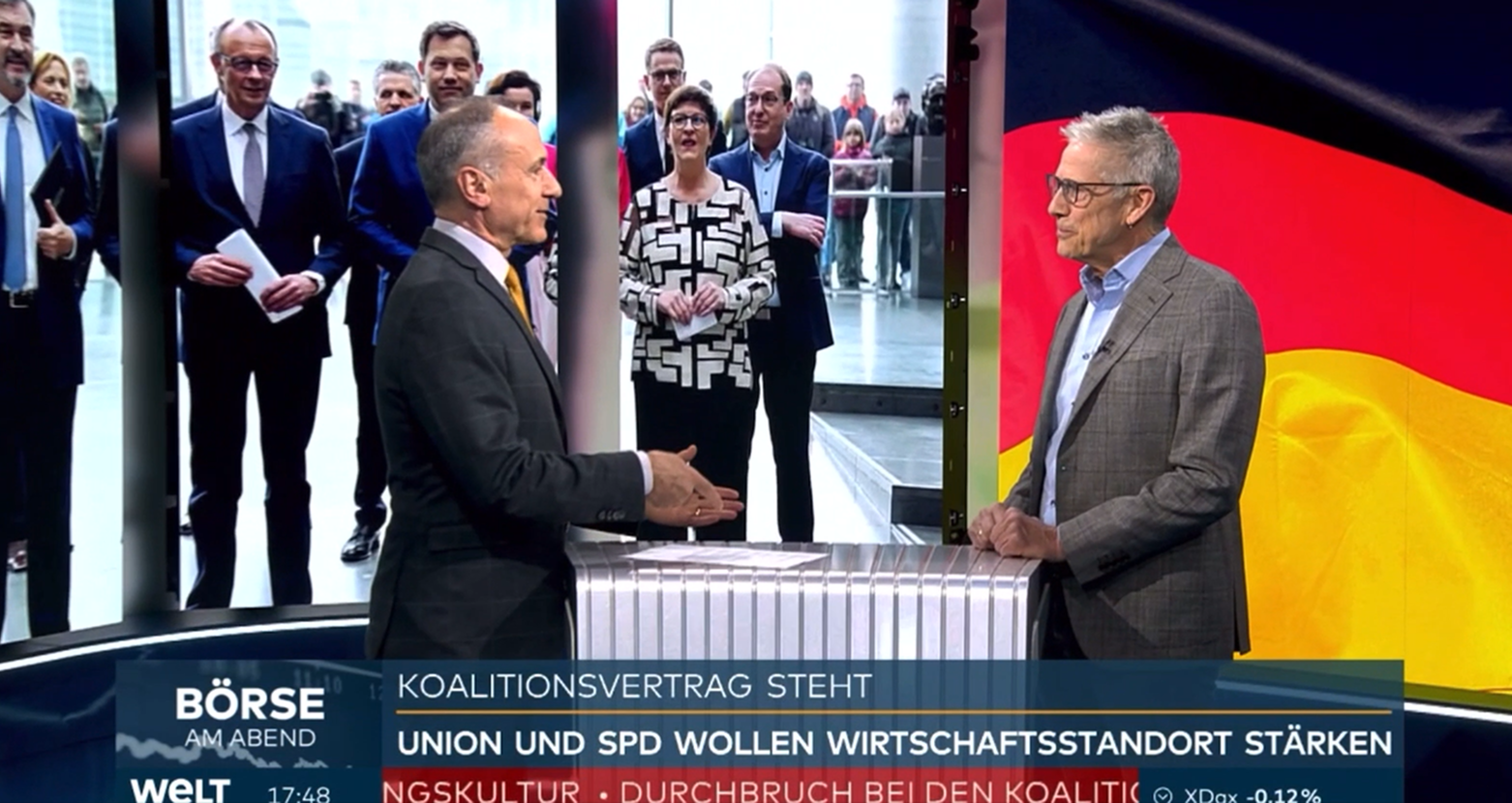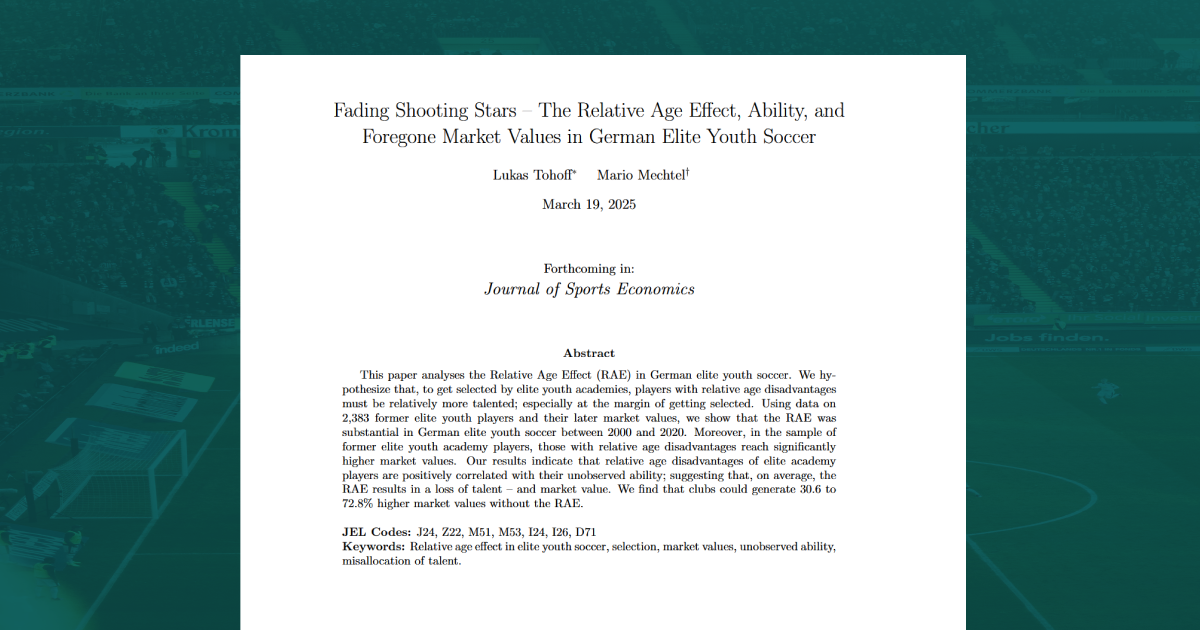In an interview with BNP Paribas Zertifikate Magazin, a Germany-based financial publication, RFBerlin’s Research Associate Jan Knuf discusses the economic implications of Donald Trump’s proposed trade tariffs and their potential impact on the global economy. The article, titled “Nur Freihandel schafft Wohlstand” (Only Free Trade Creates Prosperity), examines the consequences of heightened trade barriers and whether the U.S. economy can truly benefit from protectionist policies.
Knuf explains that Trump’s plan to impose tariffs of at least 60% on all Chinese imports represents a major shift from previous U.S. trade policies, which primarily focused on national security concerns. The introduction of a universal tariff of 10–20% on all trading partners would mark one of the most significant restrictions on free trade by an industrialized nation in decades, leading to price increases, reduced industrial output, and retaliatory measures from other countries.
While some argue that tariffs could help address trade imbalances, Knuf suggests that alternative strategies—such as enhancing U.S. export competitiveness through investments in infrastructure, education, and industrial policy—would be more effective in the long run. He also warns that a broad tariff policy may fall short of achieving Trump’s goal of reindustrialization, as globalized supply chains and labor market dynamics limit the feasibility of bringing jobs back to the U.S.
The full interview is available in German in BNP Paribas Zertifikate Magazin, a publication focused on financial markets, investment strategies, and economic policy.




